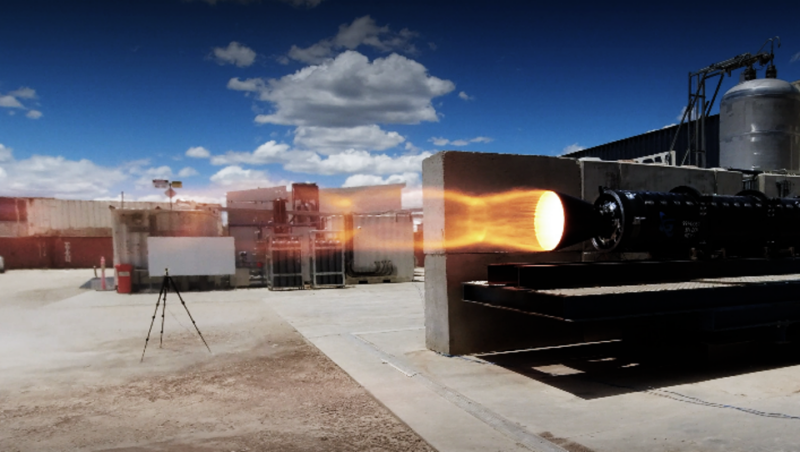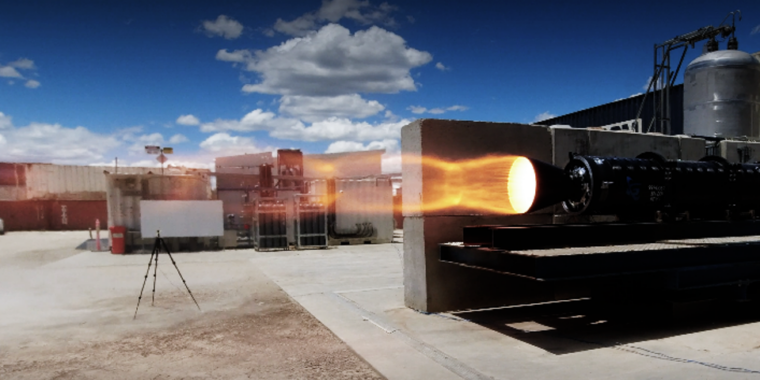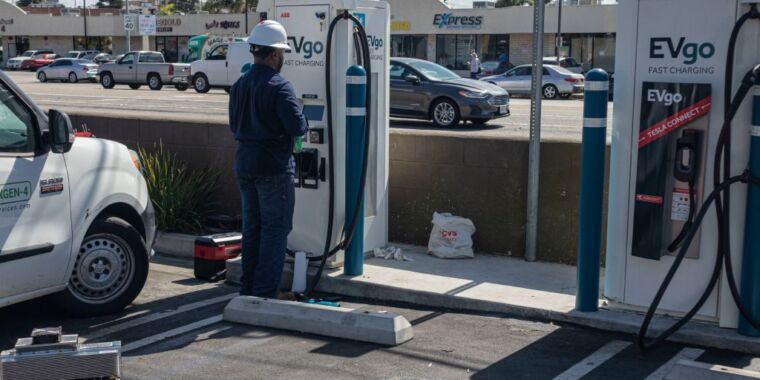
Gilmour Space
Welcome to Edition 5.17 of the Rocket Report! The big question this week is the health of NASA’s Space Launch System rocket after riding out Hurricane Nicole. Following a preliminary analysis, the space agency says it survived the storm in good condition. Further analysis will be required, however.
As always, we welcome reader submissions, and if you don’t want to miss an issue, please subscribe using the box below (the form will not appear on AMP-enabled versions of the site). Each report will include information on small-, medium-, and heavy-lift rockets as well as a quick look ahead at the next three launches on the calendar.

Virgin Galactic delays VSS Imagine testing. Space tourism company Virgin Galactic released its third-quarter financial results last Thursday after US markets closed. As one might imagine of a spaceflight company that has not flown since June 2021, the financials are pretty disastrous. The company reported revenue of less than $1 million against losses of more than $146 million. After a long period of downtime, Virgin Galactic officials said the company is close to completing “modifications” of its VMS Eve carrier aircraft and VSS Unity spacecraft. The company expects to complete a glide flight of Unity, which is released from Eve at altitude, in early 2023.
Not enough engineers … Perhaps the more significant news was the revelation from CEO Mike Colglazier that Virgin has paused development and testing of VSS Imagine, its next spaceship, which is intended to be able to fly monthly into space. The spacecraft was intended to provide cashflow to Virgin while the company developed its next generation of “Delta” spaceships. But now, Ars reports, Virgin is “reassessing” Imagine‘s schedule. “I can say that we will not be in 2023 for commercial flights with Imagine,” Colglazier said. Asked about the reasons for this delay, Colglazier explained that the company has a limited pool of experienced engineers who are familiar with Virgin’s early design work on VSS Unity.
Skyroot ready for Vikram-S test flight. The India-based private spaceflight company has a license to launch a suborbital test flight between November 12 to 16 from Sriharikota, an Indian financial site reports. The mission has been named ‘Prarambh,’ which means ‘beginning,’ to commemorate the beginning of private sector launches in India. Pawan Kumar Chandana, the startup’s CEO and co-founder, will serve as the mission director.
Honoring the country’s space pioneers … Vikram-S is the first in the Vikram series, with Vikram I/II/III following in the coming years. Skyroot’s launch vehicles are named ‘Vikram’ in honor of Dr. Vikram Sarabhai, the founder of India’s space program. The Vikram-S will help test and validate 80 percent of the technologies in the Vikram series of orbital-class space-launch vehicles, the company said.
No more New Shepard flights in 2022. During an Air Traffic Control Association event this week, Blue Origin’s Audrey Powers was asked about the investigation into a launch failure during the uncrewed New Shepard-23 mission in September. Nearly two months have passed since that accident, during which the booster was destroyed but the spacecraft made a safe landing back on Earth, without any updates from Blue Origin.
Not going to talk soon … According to Chris Davenport of The Washington Post, “Audrey Powers said Blue Origin expects to finish its technical review in December of its New Shepard rocket failure. They do not expect to fly again until ‘23. She added the company would discuss its findings publicly after completing FAA’s return to flight process.”
Rocket Lab sets Virginia launch target. The company said this week its first Electron mission to fly from NASA’s Wallops Flight Facility in Virginia has a launch window that opens on December 7. The mission, named “Virginia is for Launch Lovers,” will deploy satellites for leading radio frequency geospatial analytics provider HawkEye 360.
Solving their FTS issues … Notably, Rocket Lab said the launch window had been set following “recent progress” by NASA in certifying its Autonomous Flight Termination Unit software, which is required to enable Electron launches from Virginia. Certifying Electron’s flight termination system has been a huge issue for Rocket Lab, but now hopefully the finish line is in sight. Launching from Virginia would cap what has been an excellent year for Rocket Lab in terms of cadence and mission success. (submitted by Ken the Bin)
Branson must face Virgin Galactic lawsuit. A US judge said Monday that British billionaire entrepreneur Richard Branson must face shareholder claims he concealed problems in Virgin Galactic’s spaceship program and sold hundreds of millions of dollars of stock at inflated prices, Reuters reports. Other parts of the class-action claim against the founder of Virgin Galactic were dismissed.
Clearing the air up there … However, US District Judge Allyne Ross in Brooklyn said shareholders could try to prove that Virgin and Branson defrauded them into overpaying for the space tourism company’s shares, which now trade more than 90 percent below their February 2021 peak. Branson must also defend his statement that his own June 2021 flight on VSS Unity, where he soared 80.47 km above the Earth, had been “flawless,” though Unity had strayed from its assigned airspace.








